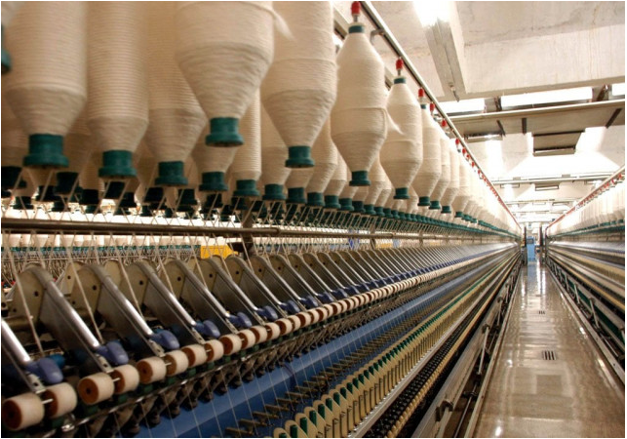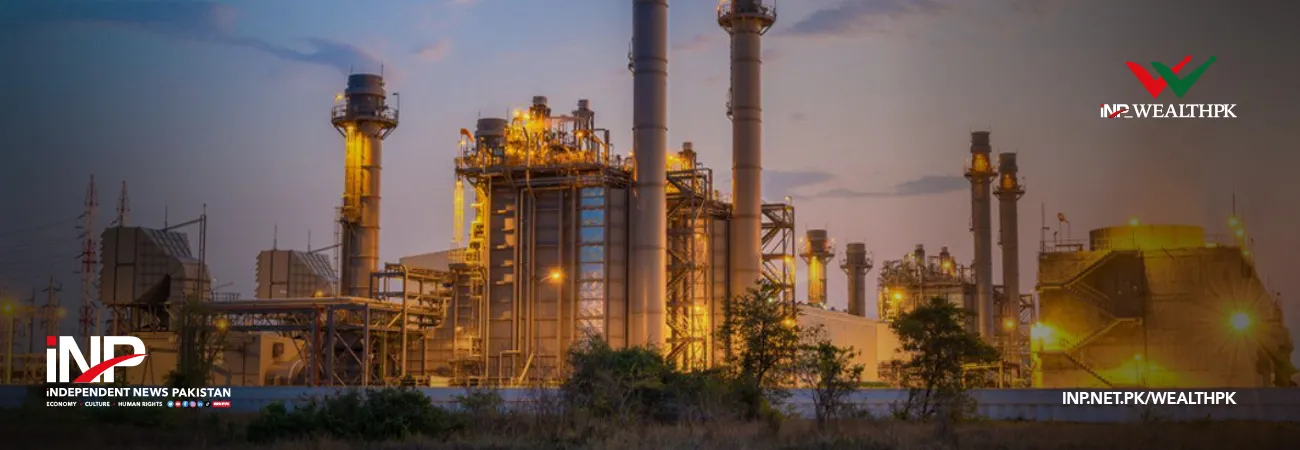INP-WealthPk
Muhammad Luqman
The Punjab government has prepared a comprehensive strategy to accelerate industrial growth across the province, aiming to boost GDP and create large-scale employment opportunities for the youth through the establishment of new industrial estates.

“We are initially working on the establishment of two industrial estates, located in Sialkot and Rawalpindi respectively. The Sialkot Industrial Estate project is at an advanced stage,” said Major (Retd) Javed Iqbal, Chairman of the Punjab Industrial Estates Development and Management Company (PIEDMC), in an interview with Wealth Pakistan. He said the Sialkot Industrial Estate was being developed over 400 acres near Sialkot International Airport.
“The new industrial estate will be linked to the Sialkot–Lahore Motorway and the airport through state-of-the-art roads to facilitate the import of industrial raw materials and the export of finished goods,” he explained. Mr. Iqbal added that efforts were underway to attract foreign investment to these estates, with the aim of encouraging greater capital inflows into Punjab’s industrial sector. He said the proposed Rawalpindi Industrial Estate was still at the conceptual stage.
“The main objective of the Rawalpindi project is to promote industrial growth in northern Punjab, which has historically lagged behind central Punjab in terms of industrialisation,” he noted. Expansion plans for the Multan Industrial Estate and Quaid-e-Azam Business Park in Sheikhupura are also under consideration, he said. Special funds have been allocated in the current fiscal year for infrastructure and sewerage system upgrades at Multan Industrial Estate.
“An amount of Rs30 billion will be spent to provide missing facilities in all industrial estates across Punjab during the current fiscal year,” Mr. Iqbal stated. Since its inception, PIEDMC has developed and upgraded nine modern industrial estates, including Sundar Industrial Estate, Quaid-e-Azam Industrial Estate (Kot Lakhpat), Multan Industrial Estate (Phases I and II), Quaid-e-Azam Business Park (Sheikhupura), Vehari Industrial Estate, Bhalwal Industrial Estate, Rahim Yar Khan Industrial Estate, and Bahawalpur Industrial Estate.
“The company has attracted over Rs450 billion in investments, including foreign direct investment, through its various estates,” Mr. Iqbal said, adding that these projects had created direct employment for more than 200,000 people. He said PIEDMC had also established a one-window service centre to streamline investor facilitation — providing all required services under one roof, including application processing, issuance of NOCs, and approvals for Special Economic Zone (SEZ) status.
To reduce the industrial burden on Quaid-e-Azam Industrial Estate, Kot Lakhpat, PIEDMC has already developed Sundar Industrial Estate and Quaid-e-Azam Business Park, Sheikhupura. “All new industrial estates are now being developed outside urban areas to ensure easy access, improved logistics, and more attractive investment locations,” he added. He said the company was also enforcing environmental compliance by issuing warning notices and directions to hazardous industries to ensure adherence to government regulations and pollution control standards.
Industrialists have welcomed the government’s plans to establish new estates and industrial clusters to promote economic activity but have expressed concern over high land costs. “The per-acre land price in the new industrial estates ranges between Rs50 million and Rs55 million, leaving very little capital for machinery and raw materials,” said Faheem-ur-Rehman Saigol, President of the Lahore Chamber of Commerce and Industry (LCCI), in an interview with Wealth Pakistan.
He urged the government to make industrial land more affordable to accelerate industrialisation, particularly for emerging entrepreneurs. “There should also be a dedicated industrial zone in Punjab for small and medium enterprises (SMEs),” Saigol suggested. “We have recently presented a plan for such a zone to the government under a public-private partnership model.” He further emphasised that industrial units should not be subjected to multiple taxes and inspections, warning that such practices often lead to harassment and extortion.
Credit: INP-WealthPk









